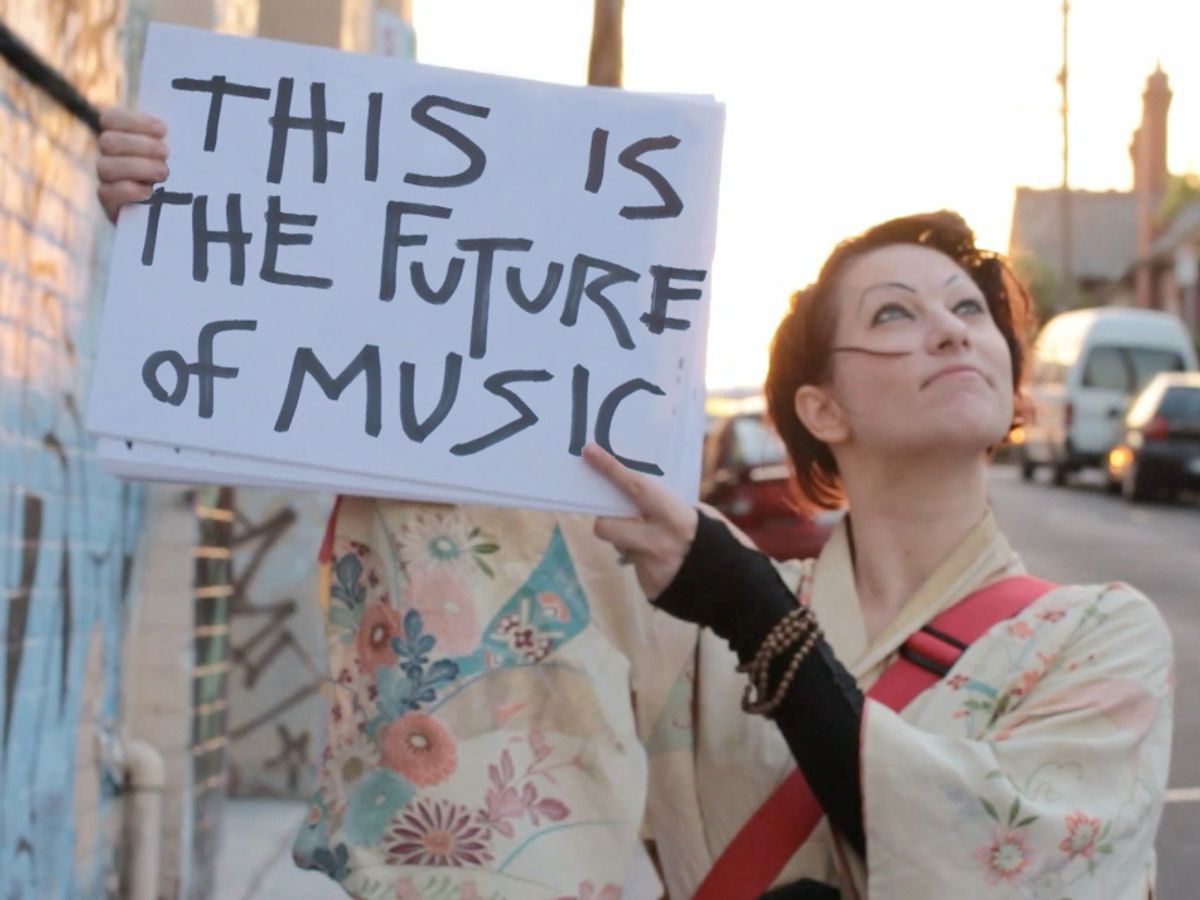The generosity and collaborative creativity of the online community are unparalleled. Just don't push your luck.
Earlier this year, the entrepreneurial singer Amanda Palmer made headlines when she drummed up $1.2 million for her new project on Kickstarter, making it one of the most successful crowd-funding ventures ever. Palmer called the enterprise "the future of music" and released her "Theater Is Evil" album to respectable reviews a few weeks ago. And as she prepared for her tour, she called upon the crowd yet again.
In an Aug. 21 blog post, she said she and her band were "looking for professional-ish horns and strings for EVERY CITY to hop up on stage with us for a couple of tunes," and that "we will feed you beer, hug/high-five you up and down (pick your poison), give you merch, and thank you mightily for adding to the big noise we are planning to make."
For a successful artist to offer audiences the opportunity to participate in her show might well be seen as a bold gesture. It could be a chance to create something new and unique every night. As Palmer promised, "its almost as good as the circus." [sic]
But coming from someone who'd just racked up a million bucks, it also seemed a little chintzy, to say the least. Seattle musicians union Local 76-493 lambasted her repeatedly on Twitter and created a petition declaring that "Musicians are workers, not volunteers." As blogger Rachel Lynn Brody grimly noted, "Asking people to do what they love for free (plus beer and hugs) – is not a change in the industry model." The producer Steve Albini was more outspoken in his assessment of Palmer on his own blog, saying, "Pretty much everybody on earth has a threshold for how much to indulge an idiot who doesn't know how to conduct herself, and I think Ms Palmer has found her audience's threshold."
Palmer, who has always paid her band Grand Theft Orchestra, retorted that "If you could see the enthusiasm of these people, the argument would become invalid," adding, "If my fans are happy and my audience is happy and the musicians onstage are happy, where's the problem?"
But it didn't help her credibility when she defensively estimated she'd take home less than $100,000 after she produced her album and book and paid the artists and musicians involved in her project. And she didn't exactly charm the pants off her critics in an open letter earlier this month, writing: "This isn’t about money. for me, this is about freedom. and about choices" and that "the reality of the players and the feeling in the room is more important to me than anything."
That's a fine sentiment – and one that many artists, whether they're musicians or photographers or dancers or writers – share. After all, if you're just looking for a quick buck, playing your cello in the subway or acting in your friend's direct-to-YouTube drama probably isn't the fast track to riches. Anyone who lives a creative life has at some point given his or her talents away, for the opportunity of greater exposure, as a favor, for the pure delight of the experience. Palmer's no doubt speaking the truth when she says the musicians who've volunteered to get up onstage with her have been happy to do it. She's done the same thing herself throughout her career, freely mixing love and money.
But the faint whiff of exploitation still hangs in the air. Palmer may have genuinely aspired to create a party-like group jam on her tour. Instead, however, she came off looking like she was asking for freebies after being handed a million dollars. And so, on Wednesday, Palmer changed her tune. She announced, "We have decided we should pay all of our guest musicians. we have the power to do it, and we’re going to do it. (in fact, we started doing it three shows ago.)" She also couldn't help sniping, "I'm sad to realize that our creative intentions of crowd-sourcing – something that i’ve done for years, and which has always been an in-house collaboration between the musicians and the fans, never a matter of public debate or attack – are getting lost in the noise of this controversy."
Not every creative endeavor is a cash transaction. We sing and dance and paint and play for the fulfillment of the experience, the joy of sharing it. But we also do it because it's a job, and as such, worthy of respect and compensation. It says something important to those "professional-ish" musicians along the road that Palmer is now willing to treat them as such. Her album is currently in the Billboard top 10. It's a success she achieved through her fans – one she invited them to share in, an investment they now truly have a stake in, every city in the tour.



Shares